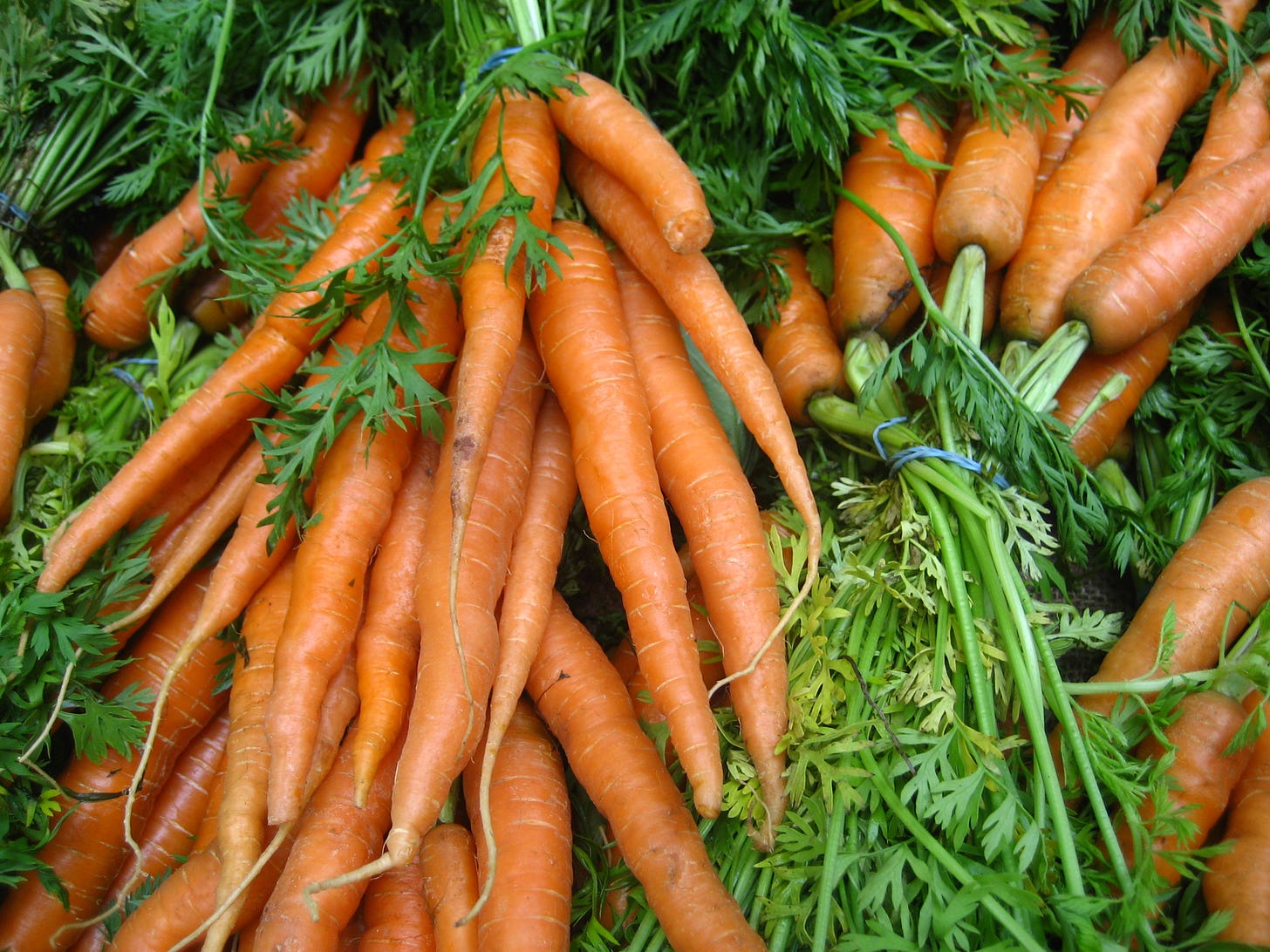We eat what we are
Issue 16: On the profound relationships between the foods we eat and our identities; remembering Anthony Bourdain; and helping during emergencies on the subway and the fairground.
Have you heard that people can turn orange if they eat too many carrots?
It’s true. Beta-carotene, the pigment in carrots (as well as mangos, apricots, and sweet potatoes), is normally converted to vitamin A. But when it’s ingested at high levels, the body can’t break it down fast enough, so the pigment stays in the bloodstream and collects in the skin. The resulting condition is harmless, but it can indeed turn a person—and especially their hands, feet, nose, or eyes—orange.
Carotenoderma is an interesting example of the old expression, “We are what we eat.” But while a temporary orange phase might be embarrassing, few would consider a new sunny hue to reflect a fundamental change in identity.
There are, of course, much more profound relationships between the foods we eat and our identities. We feel nostalgia for the cuisine of our homelands. We develop a sophisticated palate (or passion for craft beer) as a status marker. We align our ea…




